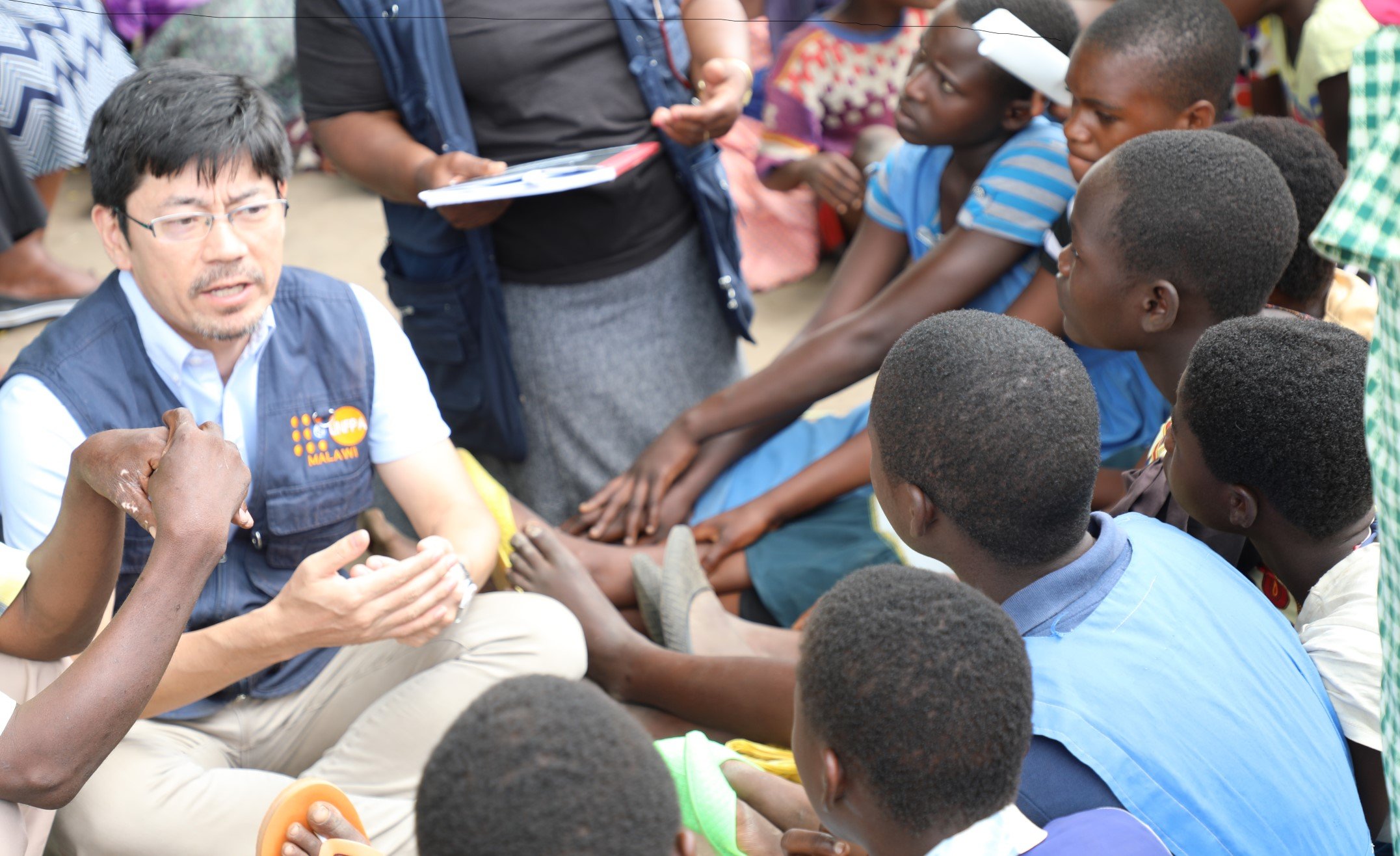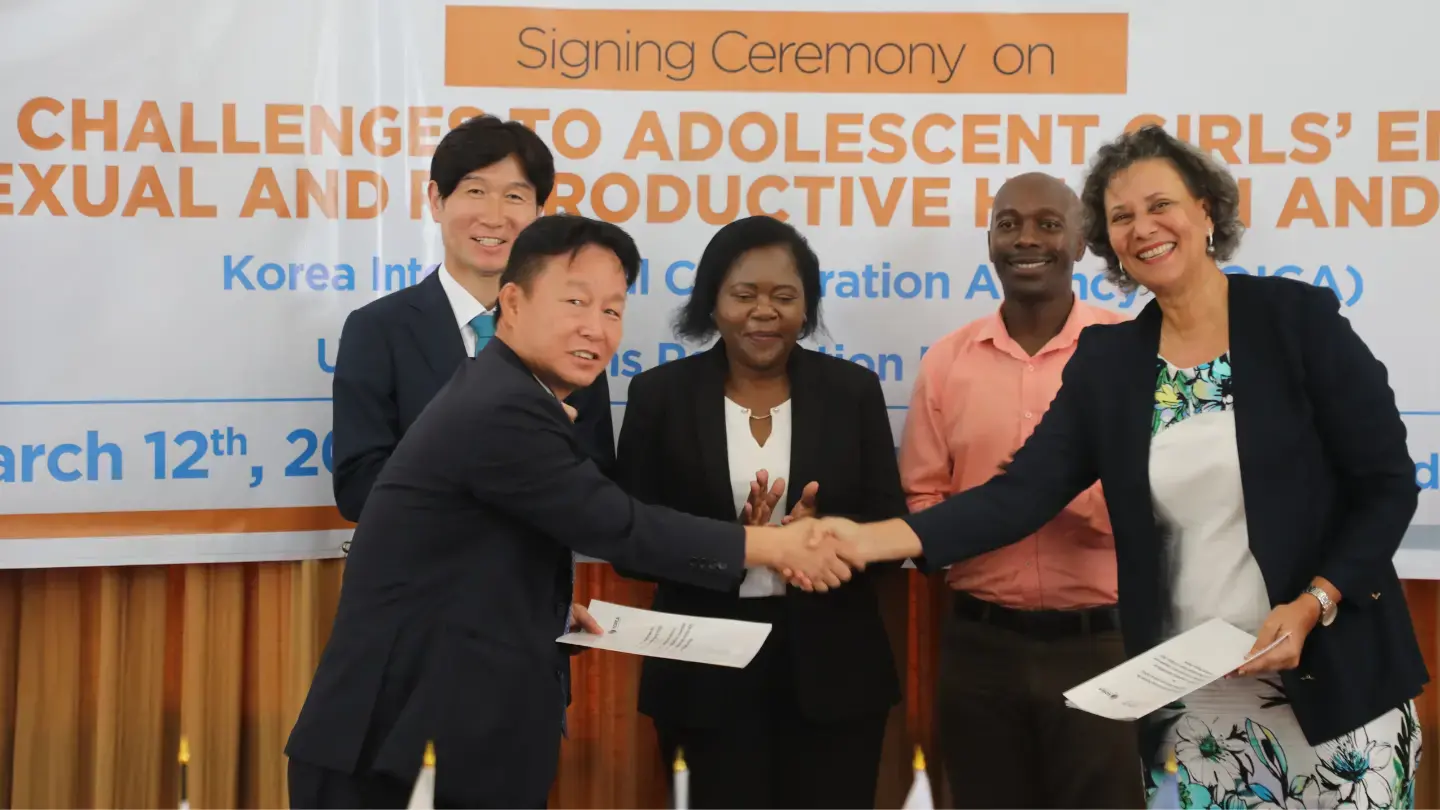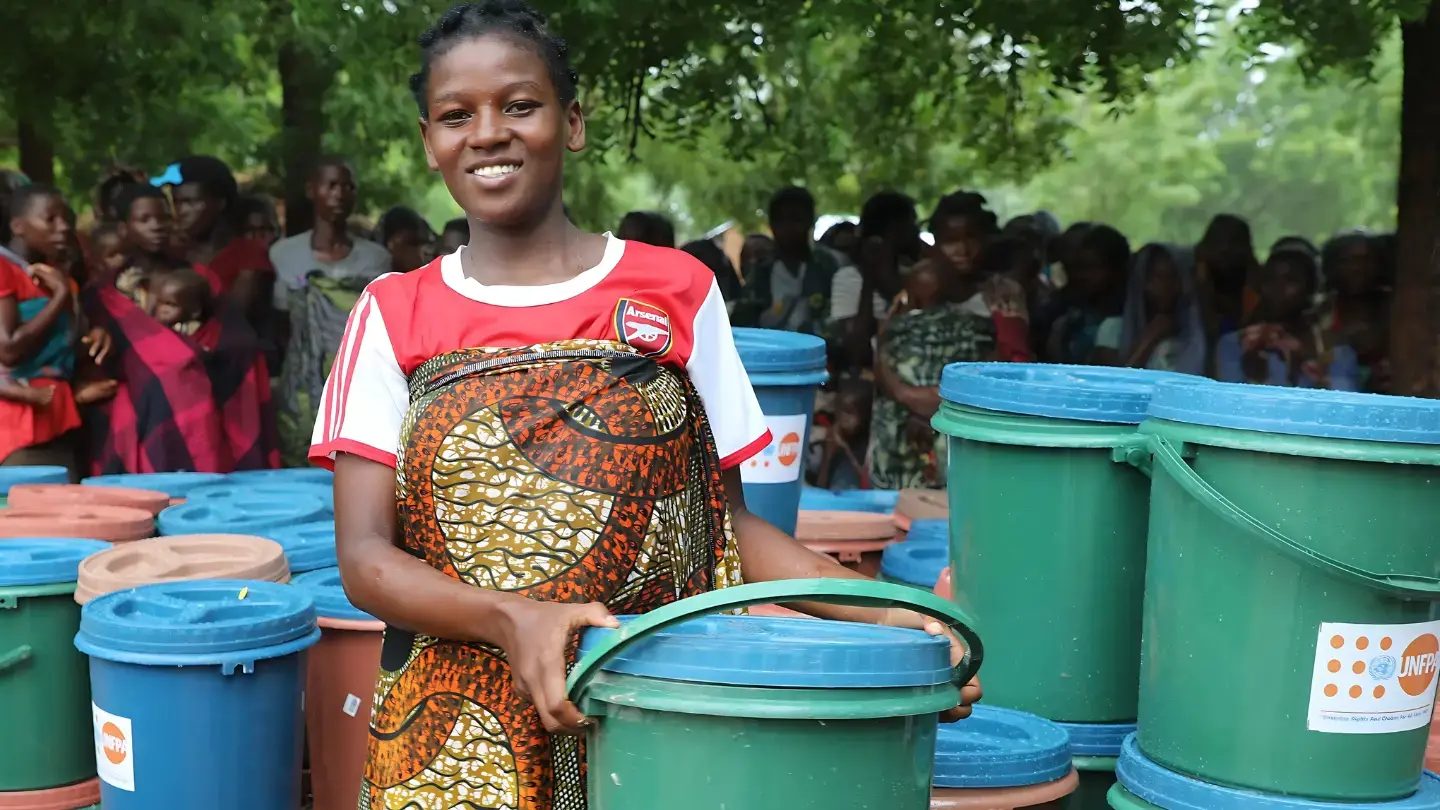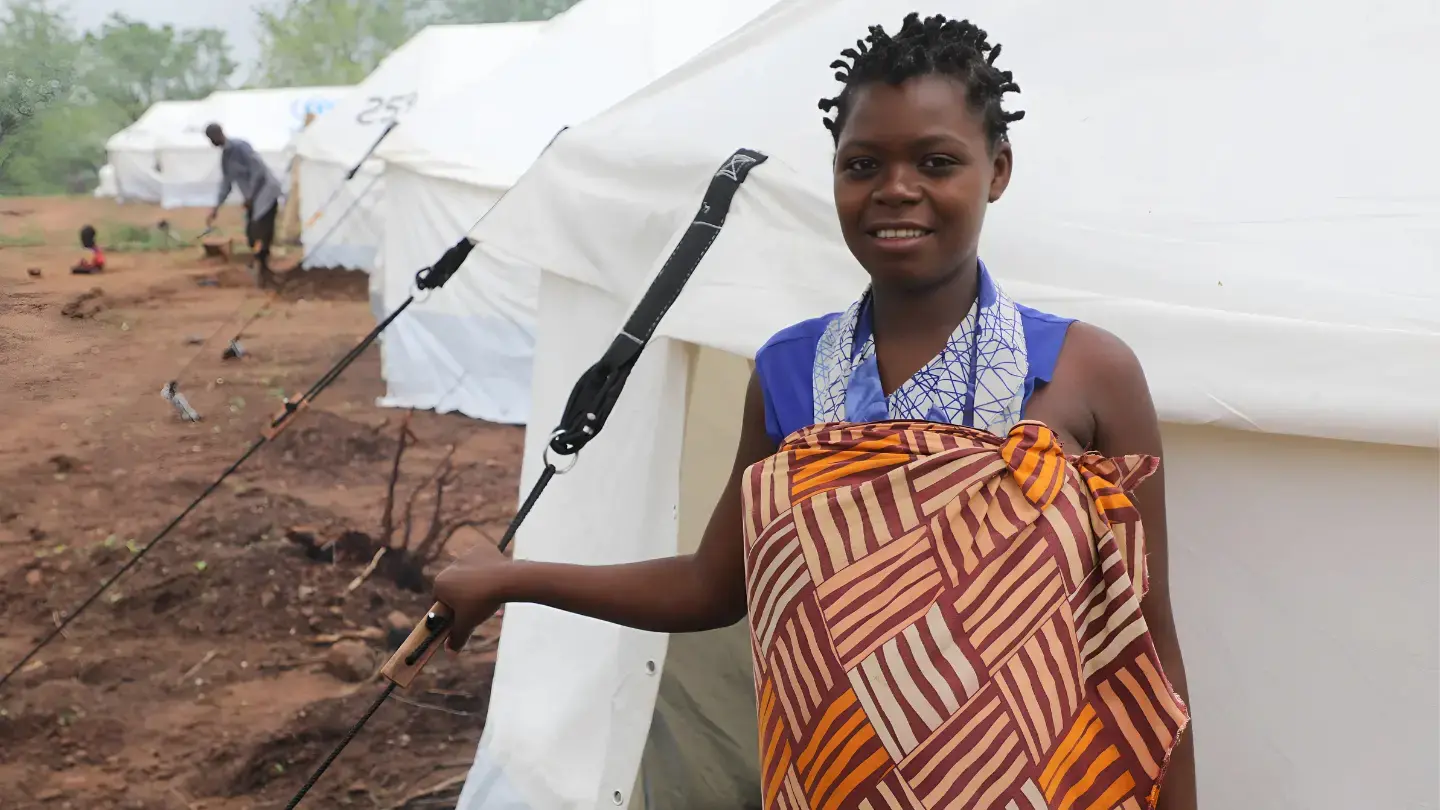NSANJE, MALAWI - On Sunday morning, Tadala was preparing to go church with her friends. It seemed a normal day for her despite heavy rains the previous night. Tadala does not live with her parents because she is learning at Mtowe Community Day Secondary school. Together with her friends, they found a house to live which is close to the school. Mtowe Community Day Secondary School, CDSS has no boarding facilities for all students. At the age of 17, she is in form three. The loud noise from the people on this day as they continued to prepare for church alarmed them. The noises grew louder and suddenly, a group of people including her parents arrived at their school with items they could lay their hands on as they left houses filled with water.
Some were left back in their village struggling to escape the flooding waters. Some women carried bags, baskets and buckets on their heads. “Among the people in this group were my parents who live at Ntchuwa area and I just saw them coming, telling me that our house is full of water and our belongings were washed away” she explained. ‘they then occupied our classrooms, immediately turning the school into a camp” said Tadala
Since early March, Mtowe CDSS, now known as Nyachilenda camp, located in Ndamera, Nsanje district is a home to 4,747 displaced people. Life in this camp is hard for many adolescent girls especially when it comes to managing their own cleanliness. “Our makeshift bathrooms are not well protected and covered because they are made of grass; as we bath, boys peep through the grass and it is an unpleasant situation” says Tadala “sometimes we resort to bath in the night or go to nearby river”.
Such is life for many girls residing at this camp. Their lives have been disturbed. Though they still go to school, the presence of their parents and other people in the same environment is not conducive for learning. Tadala and her friends also find it difficult to manage their menstruation because it is not possible to wash, dry and reuse the ‘cloth’ they often use in menstruation management in an environment where they cannot hide everything especially from males. “It is difficult for many of us girls to manage our menstruation because we lack soap and pads and the ever-presence of boys is even making it difficult to dry the ‘cloth’” says Tadala
Silira Simbi, 14, who is also living at the camp faces similar problems. “In addition to the unavailability of the pads, the place where we sleep is not safe because it is congested” says Silira “we cannot ask our parents for money to buy sanitary pads because they do not have any sources of income and we live together at the camp…..we lost everything due to the floods” she says.
UNFPA distribution of dignity kits
When the flood situation was declared a disaster by the Malawi Government, UNFPA Malawi procured initial 5000 dignity kits and started to distribute in the camps in Nsanje and Phalombe. The dignity kit includes soaps, underwear, sanitary pads, and tooth pastes, among others. The kits were handed over to the most vulnerable - primarily targeting pregnant women, lactating mothers and adolescent girls. More kits will be distributed to other districts as well.

“The dignity kits are essential to manage menstrual hygiene for women and girls. They help protect them not only from diseases but also from other threats such as intimidation and violence. Distribution of dignity kits also facilitate women and girls’ unhindered access to emergency relief and information on sexual and reproductive health” said Masaki Watabe, UNFPA Deputy Representative during the start of the distribution exercise of the dignity kits in Nsanje and Phalombe.
“We will now use the pads we have received today and no more use of the ‘cloth’- they are also hygienic” says Tadala after she received a dignity kit.
dignity kits also facilitate women and girls’ unhindered access to emergency relief and information on sexual and reproductive health, says Masaki Watabe
Girls and women remain vulnerable
Insecure and crowded camp settings with poor lighting and shortage of food and other relief items have increased the risk of sexual and gender based-violence and child marriages among adolescent girls and women living in the camps. “Although no serious cases of abuse have been reported among the affected populations, ….this is largely to due lack of openness and associated stigma and discrimination on such issues. Nevertheless, there still remains a significant risk among women and children mainly due to prevailing poor camp conditions such as lighting and insecure camp surroundings. Hence there is need to strengthen the SGBV response mechanism” says the recent interagency assessment report for Mangochi, Machinga, Balaka and Zomba districts.
Flooding situation and response in Malawi
Malawi was declared a state of disaster on 8th March, 2019. According to the Malawi Floods Response Plan launched recently, Malawi needs $45.3million to support the current humanitarian situation. It is estimated that 868,900 people have been affected by the floods where about 217,224 are women of reproductive age, 56,650 adolescent girls and about 7000 deliveries are expected in the next three months.
-Henry Chimbali-





